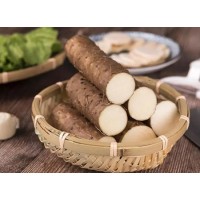Does dioscin powder have a positive impact on the treatment of prostate cancer?
Research has indicated that dioscin may possess anti-cancer properties, including anti-proliferative and anti-inflammatory effects that could be relevant to the treatment of prostate cancer.
Dioscin powder, a natural steroid compound found in various plants such as wild yam and fenugreek, has been the subject of research regarding its potential impact on the treatment of prostate cancer. Prostate cancer is a significant health concern for men, and the search for effective treatments and therapies is ongoing. In recent years, there has been growing interest in the potential benefits of dioscin powder in the context of prostate cancer treatment.
Several studies have explored the potential positive impact of dioscin powder on prostate cancer. Research has indicated that dioscin may possess anti-cancer properties, including anti-proliferative and anti-inflammatory effects that could be relevant to the treatment of prostate cancer. Additionally, dioscin has been investigated for its potential to inhibit the growth and spread of cancer cells, as well as its ability to induce apoptosis, or programmed cell death, in prostate cancer cells.
One study, published in the International Journal of Oncology, found that dioscin inhibited the growth of prostate cancer cells in a laboratory setting. The researchers observed that dioscin treatment led to a decrease in cell viability and an increase in apoptosis in the prostate cancer cells. These findings suggest that dioscin may have the potential to impede the progression of prostate cancer at a cellular level.

Furthermore, research has also explored the potential of dioscin to enhance the effectiveness of existing prostate cancer treatments. A study published in the journal Cancer Chemotherapy and Pharmacology investigated the combination of dioscin with docetaxel, a chemotherapy drug commonly used in the treatment of advanced prostate cancer. The researchers found that dioscin enhanced the anti-cancer effects of docetaxel, leading to increased inhibition of prostate cancer cell growth. This suggests that dioscin may have the potential to augment the efficacy of conventional prostate cancer treatments.
While these findings are promising, it is important to note that much of the research on dioscin and its potential impact on prostate cancer has been conducted in laboratory settings or animal models. Additional clinical studies are needed to further evaluate the safety and efficacy of dioscin as a potential treatment for prostate cancer in humans.
In conclusion, the research conducted thus far suggests that wild yam root extract dioscin powder may indeed have a positive impact on the treatment of prostate cancer. Its anti-cancer properties and potential to enhance the effectiveness of existing treatments make it a compelling area for further investigation. However, more research, including clinical trials, is necessary to fully understand the role of dioscin in prostate cancer treatment and its potential benefits for patients.














